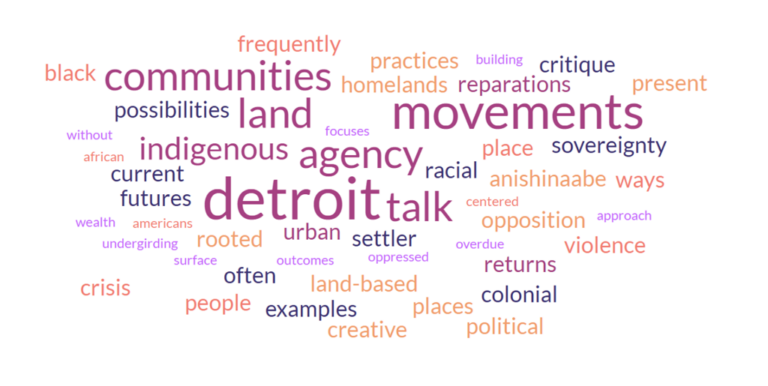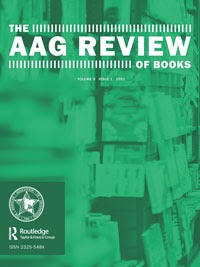AAG Announces Inaugural Class of AAG Fellows
The AAG Fellows is a new program to recognize geographers who have made significant contributions to advancing geography.
In addition to honoring geographers, AAG Fellows will serve the AAG as an august body to address key AAG initiatives including creating and contributing to AAG initiatives; advising on AAG strategic directions and grand challenges; and mentoring early and mid-career faculty. Similarly to other scientific organizations, the honorary title of AAG Fellow is conferred for life. Once designated, AAG Fellows remain part of this ever-growing advisory body. The AAG Honors Committee has recommended these 20 Fellows to serve as the inaugural class.
 Tom Baerwald, National Science Foundation
Tom Baerwald, National Science Foundation
Thomas Baerwald is Senior Science Advisor and Geography and Spatial Sciences (GSS) Program Director at the U.S. National Science Foundation. Through his role in the GSS program and through his founding and leadership of other high-profile NSF programs including the Dynamics of Coupled Natural and Human Systems (CNH) Program, Baerwald has made unique and vital contributions to the discipline of Geography. These contributions have entailed nurturing many generations of investigators in geography and spatial science and ultimately shaping the discipline in forward-thinking and transformative ways. Beyond his service to NSF, Baerwald has contributed to the discipline through his leadership roles at the regional and national level in the AAG, including as President. While president of AAG, he initiated several programs of great, lasting value, including the promotion of interdisciplinarity linking geography and scholars and other fields and work to enhance and strengthen the membership-based governance of the AAG, as well as promoting diversity inclusive policies toward women. Baerwald has also served in leadership roles in the National Council for Geographic Education (NCGE), where he has contributed his organizational and intellectual talents to enhance the health, quantity, and quality of geography education, from the K-12 level to graduate and post-doctoral levels.
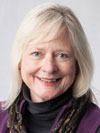 Sarah Bednarz, Texas A&M University
Sarah Bednarz, Texas A&M University
Dr. Sarah Bednarz, Professor Emerita at Texas A&M University and former AAG President, has been a pioneer in research on the intersection of teaching and learning geospatial technologies and spatial and geographic thinking. Throughout her career, Dr. Bednarz has been a stalwart of the discipline, making significant contributions to both the field and the AAG. She co-chaired the Geography Education Research Committee (GERC) to produce the 21st Century Road Map for 21st Century Geography Education Project. She was also co-coordinator of the Texas Alliance for Geographic Education (1988-2012) and continues to serve as a member of the committee to develop the National Assessment of Educational Performance (NAEP) framework in geography. Most significantly, Dr. Bednarz co-authored the national geography standards, Geography for Life. In recognition of her achievements, Dr. Bednarz received the George J. Miller Award from the National Council for Geographic Education in 2005 and the Gilbert H. Grosvenor Honors for Geographic Education from the Association of American Geographers in 2007 for her research in geographical education.
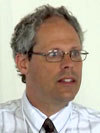 Daniel Block, Chicago State University
Daniel Block, Chicago State University
A skilled cartographer, Dr. Block uses both qualitative and quantitative research methods in his investigations of food access and security in Chicago’s underserved and disadvantaged neighborhoods. His work exemplifies the kind of mixed methods collaborative problem solving that geography is uniquely positioned to tackle. He is able to complement his research and many important publications with organization and leadership skills. As leader of his university’s Neighborhood Assistance Center he has made a difference in the lives of many people in Chicago as part of his effort to take geography beyond the limits of the academy. Working tirelessly as a teacher at Chicago State University (CSU), a chronically under-funded Historically Black University on Chicago’s far south side he has created learning environments in which students are engaged with fundamental debates about food inequalities, informed by their own experiences. His classroom is a place of trust where students feel they can engage in intellectual debates of issues critically important to their lives and communities.
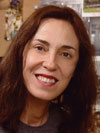 Judith Carney, UCLA
Judith Carney, UCLA
Professor Judith A. Carney has made path-breaking contributions to the fields of human-environment geography, political ecology, biogeography, and gender and diaspora studies. In her prize-winning books, Black Rice and In the Shadow of Slavery, Professor Carney overturned longstanding assumptions and prejudices regarding the roles of African slaves and African cultivars in the agricultural settlement of the New World. Through painstaking, innovative, inter-disciplinary methods and collaborations, she has produced foundational insights into the relations among knowledge, power, gender, race, and landscapes, both historically and in the present. She has integrated the natural sciences, social sciences, and humanities with rigor and creativity, and her service to scholarly and public values spans continents as well as disciplines. A member of the American Academy of Arts and Sciences, the recipient of Guggenheim and Rockefeller-Bellagio fellowships, and the winner of major awards from numerous professional societies, Professor Carney is eminently deserving of recognition as a member of the inaugural cohort of AAG Fellows.
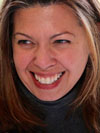 Jennifer Clark, Georgia Institute of Technology
Jennifer Clark, Georgia Institute of Technology
Dr. Jennifer Clark is a prominent scholar of institutions and their contribution to regional innovation systems, focusing primarily in the United States but also working with collaborators in the UK and Europe. She is a key figure in the movement to integrate social and economic equity principles into the study of place-based innovation systems and firm networks. This integration is critically important for public policy and has implications for the future of economic development practice in advanced industrialized nations. Her writings, particularly on innovation policy, regularly inspire new rounds of scholarship in economic geography, regional studies and planning. Dr. Clark also has distinguished herself in translating economic geography research to policy circles. She has advocated on behalf of workers, small businesses and community colleges in high-level, national discussions over advanced manufacturing policy in the United States, serving as a member of the Milstein Symposium’s commission and as an advisor to President Obama’s Council of Advisors on Science and Technology. In addition, she has provided expert testimony on Smart Cities before the US Congress and policy advice and consulting to the Organization for Economic Cooperation and Development (OECD), the European Commission, and the Canadian, UK, and US governments.
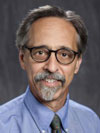 Craig Colten, Louisiana State University
Craig Colten, Louisiana State University
Craig Colten is the Carl O. Sauer Professor in the Department of Geography and Anthropology at Louisiana State. Craig Colten is a leading scholar in the field of environmental historical geography and very active contributor to the discipline. His book entitled An Unnatural Metropolis: Wresting New Orleans from Nature is perhaps one of his most seminal works. The timeliness of this work, published just before Hurricane Katrina landed on the Gulf Coast, made Colten’s book immediately relevant to the public and media searching for answers in understanding all of the factors that contributed to the socially and spatially uneven way this destruction was experienced and distributed. His earlier book, The Road to Love Canal is a standard reference in the legacy of industrial waste management. Within the AAG and the discipline, he has served on the AAG Council, AAG specialty group boards and many AAG committees. He has also worked as editor of Geographical Review, co-editor of Historical Geography, and on numerous journal editorial boards. Currently, Colten serves as a counselor for the American Geographical Society. He has also become a mentor to many younger geographers who have learned and flourished under his tutelage. Many of these students would attribute their successes post-graduation in no small part to the guidance and time Colten provided them. He has also been active in the local community serving as the Director of Human Dimensions in Baton Rouge from 2013-2015.
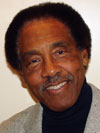 Joe Darden, Michigan State University
Joe Darden, Michigan State University
Joe T. Darden is Professor of Geography and former Dean of Urban Affairs and Department Chair of Geography at Michigan State University. Darden has received numerous awards for his scholarship and service, including a Fulbright Fellowship, the Distinguished Scholar of Ethnic Geography Award (AAG), the Diversity Award (AAG) and the AAG’s Harold Rose Award for Antiracism Research and Practice. He is author or editor of numerous important, influential and, in many respects prescient books in the field of urban geography and social justice including: The Significance of White Supremacy in the Canadian Metropolis of Toronto (2004), The African Diaspora in the United States and Canada at the Dawn of the 21st Century (2010), and Detroit: Race Riots, Racial Conflicts and Efforts to Bridge the Racial Divide (2013). Darden’s work as a public advocate for equality and anti-racism is extensive and includes service to the Chicago Board of Education, the State of Michigan Task Force on Minority Health Affairs, and the NAACP. Darden has made many other important contributions to the discipline of Geography, especially as Chair of the Enhancing Diversity committee. In these roles he has not only enhanced AAG’s equity practices, but also contributed to broader goals of increasing diversity of graduate Geography enrollments throughout North America.
 David DiBiase, ESRI
David DiBiase, ESRI
David DiBiase directs the Education Outreach Team at Esri. DiBiase has made many outstanding contributions to advancing geographic education and to paving career paths for geospatial professionals over the last several decades. At Penn State, he was the Founding Director of the John A Dutton e-Education Institute, where he created and promoted open educational resources (OER) and lead the development of the Institute’s online GIS Masters and Certificate programs. His contributions to geographic education have also included spearheading the development of the GIS&T Body of Knowledge and two geospatial competency models for the US Department of Labor in (technology and management). He also currently serves AAG as a National Councilor. In his current position at Esri, he promotes geography in primary, secondary and higher education, with notable leadership in developing and advancing massive open online courses (MOOCs).
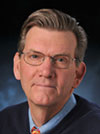 Kenneth Foote, University of Connecticut
Kenneth Foote, University of Connecticut
No other member of our organization has initiated and conducted more programs that enhanced the careers of early and mid-career geographers as well as supported efforts to strengthen departmental leadership. Professor Foote’s leadership has impacted nearly all members of our discipline. He served as President of both the AAG (2010-2011) and the National Council for Geographic Education (2006); he is one of only a few geographers in the last century to have held this role in both our organizations. By garnering a series of major grants he enabled the AAG to offer a range of institutes, workshops and supportive initiatives that enabled departmental leaders and individual faculty members to be more effective, thereby increasing the viability of geography as an academic discipline.
His academic research is focused on the interpretation of places and particularly how communities in the United States have commemorated or hidden sites of violence or tragedy. His book Shadowed Ground (1997 and 2013) has been followed by a series of important journal articles. Professor Foote’s distinguished career as teacher and mentor has been recognized with several major awards from The AAG, the National Council for Geographic Education, the University Consortium for Geographic Information Science (UCGIS), and the Royal Geographic Society.
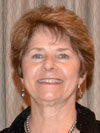
Amy Glasmeier, Massachusetts Institute of Technology
Amy Glasmeier is Professor of Economic Geography and Planning and former chair of Planning at MIT. Her contributions to geography include her scholarly record as an economic geographer, her commitment to informing public policy, her service to journals and the discipline, and her teaching and mentoring of both graduate and undergraduate students at MIT, Penn State, and the University of Texas-Austin. Glasmeier’s many awards included the Roepke Lecture in Economic Geography, the Distinguished Scholarship Honor Award (AAG), and The John D. Whisman Appalachian Regional Scholar, among others. These awards are testament her outstanding contributions to Economic Geography especially her work on rural economic development, poverty, and the geography of manufacturing. Glasmeier is the author and co-author of numerous books including: An Atlas of Poverty in America (2005); Manufacturing Time: Global Competition in the World Watch Industry 1750-2000 (2000); From Combines to Computers: Rural Services and Development in the Age of Information Technology (1995); High-tech Potential: Economic Development in Rural America (1991); and High Tech America (1986). Glasmeier is founding editor of the Cambridge Journal of Regions, Economy, Society and has served as editor of both Economic Geography and Regional Studies. She served as Treasurer of the AAG, as an AAG National Councilor, as chair of the Economic Geography Specialty Group, and as a lead author of the 2016 National Research Council report on ‘Fostering Transformative Research in the Geographical Sciences’.
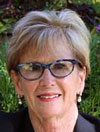 Patricia Gober, Arizona State University
Patricia Gober, Arizona State University
Dr. Patricia Gober from the School of Geographical Sciences and Urban Planning at Arizona State University has been named a 2017 AAG Fellow. Gober’s research career began in population geography with expertise in migration, policy and urban growth and has evolved over time into research examining the impacts of human activities on the physical environment. Recently she has investigated and quantified spatial patterns of carbon dioxide in urban areas. As the PI on a multimillion-dollar NSF grant, Gober’s project, Decision Center for a Desert City (DCDC) has made “significant advances in understanding water policy, modeling alternative futures in a complex social-physical system, addressing urban adaptation to climate change, developing and sustaining a community-based boundary organization, and education a new generation of scholars.” Gober has been a leader in the discipline, not only by her research, but also by her service. She has served on numerous AAG committees including the Nystrom Awards Committee, Finance Committee, Nominating Committee, and Centennial Coordinating Committee. Her service to the AAG culminated with her tenure as Vice President, President, and Past President.
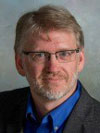 Stephen Hanna, University of Mary Washington
Stephen Hanna, University of Mary Washington
Dr. Stephen Hanna is Professor of Geography at the University of Mary Washington. During his long and active career, Dr. Hanna has exemplified doing Geography. His work in the field of critical cartography has drawn attention to the ways that a map’s meaning changes through use. He also continues to produce maps for consumption by the general public; his research on tourism has also changed the way that slavery is being interpreted for the public on Virginia plantations. He is an accomplished and generous mentor of undergraduates, and has a strong track record of fostering undergraduate inclusion in the research process as research assistants and through field study. A committed administrator, he has chaired Mary Washington’s Geography Department for 8 years (three terms).
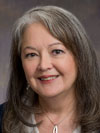 Audrey Kobayashi, Queen’s University
Audrey Kobayashi, Queen’s University
Audrey Kobayashi is Professor in the Department of Geography at Queen’s University, Canada. During her long and distinguished career, Kobayashi has made tremendous achievements to advance geography and social justice. Her research has had significant impacts in feminist and ethnic geographies. Moreover, she has convincingly researched, proactively advocated, and provided strong leadership for anti-racist geography within and beyond AAG. Kobayashi’s significant impacts are reflected in the accolades awarded to her (e.g., elected by national membership to serve as both AAG and CAG’s president, a Fellow of the Royal Society of Canada, both AAG’s Lifetime Achievement Award and Presidential Achievement Award), her scholarly work on the intersections of race, gender, and class, and her outstanding mentorship to students (especially women and minorities) and colleagues across national boundaries.
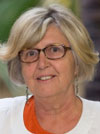 Helga Leitner, UCLA
Helga Leitner, UCLA
Dr. Helga Leitner is Professor in the Department of Geography at the University of California at Los Angeles.. Dr. Leitner is one of the leading urban-social geographers in the world. Although deeply committed to the study of global urbanization, Leitner’s work has also explored the politics of scale, migration and immigration, GIS and local politics, contentious politics and (trans)local activism, and neoliberalism. While a prolific scholar – she has published well over 100 articles and books chapters, in addition to one monograph and two edited volumes – she is especially renowned for her work as a mentor and collaborator. As a mentor, Leitner has sat on over 125 graduate committees and has placed over twenty Phd students in departments around the world. As someone who knows how to make things happen, she has organized numerous international conferences, seminars and research collaborations, especially between the Global North and South.
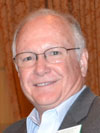
Richard Marston, Kansas State University
Richard Marston is a geomorphologist with a distinguished career studying landform stability and adjustment to environmental changes including mining, wildfires, de- and re-forestation, grazing, and agriculture. Over the course of his academic career, he has worked in the Geography Departments at University of Texas at El Paso, University of Wyoming, Oklahoma State, and Kansas State. Dr. Marston’s myriad contributions to the field include serving as President of the AAG and as co-editor in chief of Geomorphology. He has supervised 44 graduate students and unofficially mentored many early- and mid-career scholars. He is a fellow of the AAAS and GSA, and served as a Jefferson Science Fellow in the Office of the Geographer of the US Department of State. His previous recognitions from AAG include Distinguished Career awards from the Mountain Geography and Geomorphology specialty groups, the Meredith F. Burrell Award, and the Ronald F. Adler Distinguished Service Award.
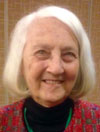 Janice Monk, University of Arizona
Janice Monk, University of Arizona
Janice Monk is Research professor in the School and of Geography and Development at University of Arizona. Her lifelong distinguished contributions to Geography in research, teaching/mentoring, service and leadership, especially in indigenous and gender studies, and higher education, have had significant impacts in the U.S. and abroad. Originally coming from Australia in the 1960s, Monk has long witnessed and experienced gender discrimination. She has led intellectual and practical pursuits to break down gender barriers in academia and to seek gender equity. As an American geographer, she has served as an important connection between AAG and IGU, between geographers in the U.S. and the rest of the world. Her long-term and sustained leadership at IGU’s Commission on Gender and Geography was instrumental for the Commission being granted with the IGU’s inaugural Commission Excellency Award. She has been recognized with a Laureate of Honour of the Research IGU and an Honorary Doctorate from the Autonomous University of Barcelona.
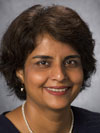 Kavita Pandit, Georgia State University
Kavita Pandit, Georgia State University
Dr. Kavita K. Pandit is Associate Provost for Faculty Affairs at Georgia State University. Her long and distinguished career in leadership includes heading the Department of Geography at the University of Georgia, university-level administration at the University of Georgia and SUNY-Albany, and serving as President of the AAG (2006-07). She has played multiple leadership roles in SEDAAG, for which she was awarded a SEDAAG Lifetime Achievement Award in 2014. An influential population geographer, she has conducted innovative research in international migration, education, and diversity. She has mentored countless undergraduate and graduate students, with long-lasting and profoundly positive impacts on their professional careers. She is an exemplary role model.
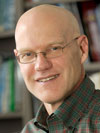
Bruce Rhoads, University of Illinois
Bruce Rhoads is Professor in the Department of Geography and Geographic Information Science at the University of Illinois. Rhoads is an eminent fluvial geomorphologist who also has contributed to fields including philosophy of science, river management, and environmental restoration. Employing methods ranging from statistics to modeling to field measurements, Dr. Rhoads studies fluvial systems and the ways they shape and are shaped by human interactions with the environment. His service to Geography includes chairing the University of Illinois department for more than a decade, serving as a long term editor of The Professional Geographer and Geographical Analysis, reviewing for dozens of journals and 11 NSF programs, mentoring students and early-career faculty at Illinois and many other institutions, and serving on the AAG Programming Committee and as chair of the Geomorphology Speciality Group. He has received both the G.K. Gilbert Award for outstanding research, and the Melvin M. Marcus Distinguished Career award from the Geomorphology Specialty Group.
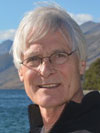 Douglas Sherman, University of Alabama
Douglas Sherman, University of Alabama
Professor Douglas J. Sherman is Professor and Chair of the Department of Geography at the University of Alabama. Sherman has a long and distinguished record of excellence in research, teaching, and service. An internationally recognized coastal geomorphologist, Sherman has pioneered methods, models, and instruments for measuring aeolian sediment transport more accurately. His work spans theory and application across a wide range of spatio-temporal scales, and his findings have made contributions to coastal engineering and management, hazard and risk analysis as well as human and physical geography. In addition to his research, he has dedicated a combined 18 years of his career to service as chair of departments at three different universities, expanding and enhancing the prominence of Geography in each case. His teaching, mentorship, and skills as a reviewer are legendary among his many students and colleagues. Professor Sherman is a Fellow of the AAAS, a two-time recipient of Fulbright Awards, and has received both the Nystrom Dissertation Award and the R.J. Russell Award from the Coastal and Marine Geography Specialty Group.
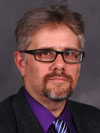 James Tyner, Kent State University
James Tyner, Kent State University
James Tyner is Professor in the Department of Geography at Kent State University. Tyner is a prolific scholar who has dedicated himself to expanding our understandings of geographies of difference, power and violence. While his work is notably broad, spanning from the spatiality of Malcolm X to Pilipino immigration, he is perhaps best known for his 2009 landmark book, War, Violence, and Population: Making the Body Count. In this book, which won the Meridian Award, he challenged population geographers to grapple with the disciplining of nations and bodies. This line of work has also led him to advocate for the study of peace in geography. To date, Tyner has penned over fifteen books. He has received the Glenda Laws Award from the AAG for outstanding contributions to scholarship on social issues, and he has won the Distinguished Scholar award from the Ethnic Geography Specialty group.
The AAG Fellows are chosen by the AAG Honors Committee. The 2017-2018 Honors Committee Members are Robin Leichenko (chair) (Rutgers University), David A. Lanegran (Macalester College), Wei Li (Arizona State University), Kendra McSweeney (Ohio State University), Laura Pulido (University of Oregon), and Nathan Sayre (University of California Berkeley). Observer members this year, who will rotate in as members next year, are Lisa DeChano-Cook (Western Michigan University), Wendy Jepson (Texas A&M University), and Rebecca Lave (Indiana University).

